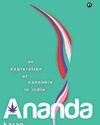
MARJAN DE BLOK readjusts her body weight as she treads along the jetty linking a floating community on a canal off the River IJ. Through the whipping winds, she shouts greetings to many of her neighbours.
On the day I visited in autumn 2021, heavy rains and 80-kilometeran-hour winds put Amsterdam, just a short ferry ride away, on alert. But in the northern neighborhood of Schoonschip, life carried on mostly as usual. De Blok visited with neighbours while the homes glided up and down their steel foundational poles with the movement of the water below.
"It feels like living at the beach, with the water, the saltiness of the air and the seagulls," she says. "But it also feels special because, initially, we were told that building your own neighbourhood, it's just impossible."
A long list of European lawmakers, urban planners, entrepreneurs and citizens have visited Schoonschip to see the real-life manifestation of a once science-fiction idea. De Blok, a Dutch reality-TV director, has shown them Schoonschip's patchwork of environmentally focused social projects: lush floating gardens beloved by the water birds; a community centre featuring floating architecture diagrams; and a nearby on-land vegetable patch. But the homes' industrial-chic design and their immediate proximity to the city, she says, are what surprise visitors most.
Schoonschip can serve as a prototype for the more than 600 million people-close to 10 per cent of the world's population who live near the coast and less than 10 metres above sea level. As the effects of climate change intensify, sea levels are forecast to rise somewhere between 30 and 240 centimetres this century, and storms are expected to increase in frequency and intensity. In the summer of 2021, at least 220 people died in Germany and Belgium from a once-in-400-year rain event. In Zhengzhou, China, 630 millimetres of rain fell in one day, killing nearly 300 people.
This story is from the September 2023 edition of Reader's Digest India.
Start your 7-day Magzter GOLD free trial to access thousands of curated premium stories, and 9,000+ magazines and newspapers.
Already a subscriber ? Sign In
This story is from the September 2023 edition of Reader's Digest India.
Start your 7-day Magzter GOLD free trial to access thousands of curated premium stories, and 9,000+ magazines and newspapers.
Already a subscriber? Sign In

ME & MY SHELF
Siddharth Kapila is a lawyer turned writer whose writing has focussed on issues surrounding Hinduism. His debut book, Tripping Down the Ganga: A Son's Exploration of Faith (Speaking Tiger) traces his seven-year-long journey along India's holiest river and his explorations into the nature of faith among believers and skeptics alike.

EMBEDDED FROM NPR
For all its flaws and shortcomings, some of which have come under the spotlight in recent years, NPR makes some of the best hardcore journalistic podcasts ever.

ANURAG MINUS VERMA PODCAST
Interview podcasts live and die not just on the strengths of the interviewer but also the range of participating guests.

WE'RE NOT KIDDING WITH MEHDI & FRIENDS
Since his exit from MSNBC, star anchor and journalist Mehdi Hasan has gone on to found Zeteo, an all-new media startup focussing on both news and analysis.

Ananda: An Exploration of Cannabis in India by Karan Madhok (Aleph)
Karan Madhok's Ananda is a lively, three-dimensional exploration of India's past and present relationship with cannabis.

I'll Have it Here: Poems by Jeet Thayil, (Fourth Estate)
For over three decades now, Jeet Thayil has been one of India's pre-eminent Englishlanguage poets.

Orbital by Samantha Harvey (Penguin Random House India)
Samantha Harvey became the latest winner of the Booker Prize last month for Orbital, a short, sharp shock of a novel about a group of astronauts aboard the International Space Station for a long-term mission.

She Defied All the Odds
When doctors told the McCoombes that spina bifida would severely limit their daughter's life, they refused to listen. So did the little girl

DO YOU DARE?
Two Danish businesswomen want us to start eating insects. It's good for the environment, but can consumers get over the yuck factor?

Searching for Santa Claus
Santa lives at the North Pole, right? Don't say that to the people of Rovaniemi in northern Finland